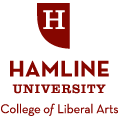Date of Award
Spring 2019
Degree Type
Honors Project
School
College of Liberal Arts
First Advisor
Dr. Katherine Bjork
Abstract
Recently, there has been significant historical inquiry into the political role plebeians played in early republican Latin America. However, the role of plebeians in liberal nation-building efforts in the early 19th century has received far less attention. This study addresses this question through case studies of Ezequiel Zamora in Venezuela, Ramón Mercado in Colombia, and Juan Álvarez in Mexico. Each of these men, as local leaders of liberal societies in rural areas, interacted directly with plebeians in their efforts to build national liberal political movements, acting as mediators between national liberal parties and their plebeian supporters. Through this interaction they also gave rural plebeians an opportunity to participate in and influence national politics. By focusing on these cases, this study illuminates how plebeians across Latin America helped shape conceptions of the nation and national identity. Drawing on primary accounts from each figure, alongside contemporary petitions, newspapers, and pamphlets, the paper outlines how the formation of cross-class political coalitions championed by middle-class “mediators” contributed to the construction of nations in early republican Latin America. Most interestingly of all, this form of nation-building occurred largely without powerful state backing, differentiating it from the traditional historical perspective that the state has been the primary author of the nation.
Recommended Citation
Riley, Duncan, "Ciudadanos: Constructing the nation at the margin of the state in Venezuela, Colombia, and Mexico, 1846-1870" (2019). Departmental Honors Projects. 84.
https://digitalcommons.hamline.edu/dhp/84
dc_type
text
dc_publisher
DigitalCommons@Hamline
dc_format
application/pdf
dc_source
Departmental Honors Projects

